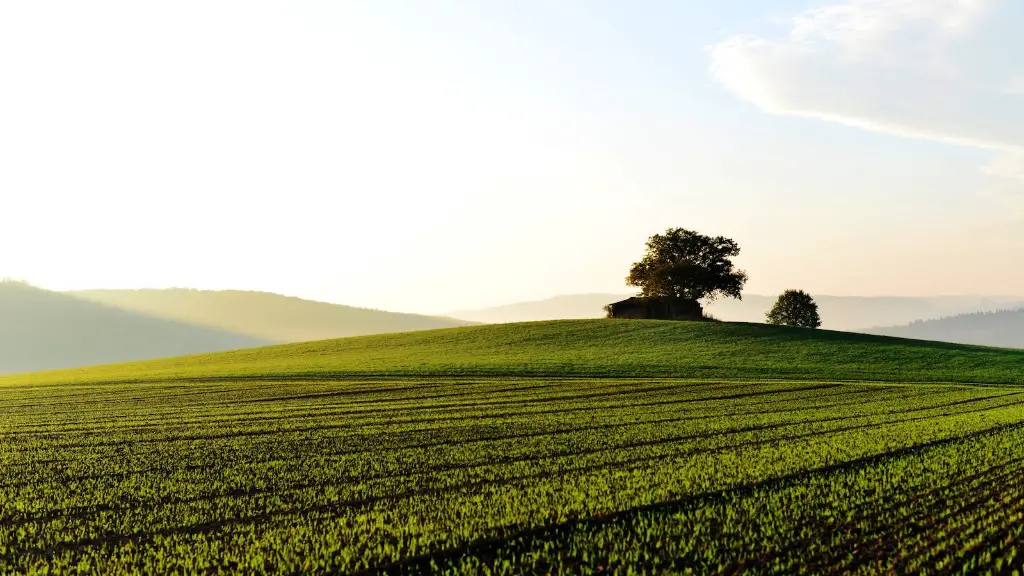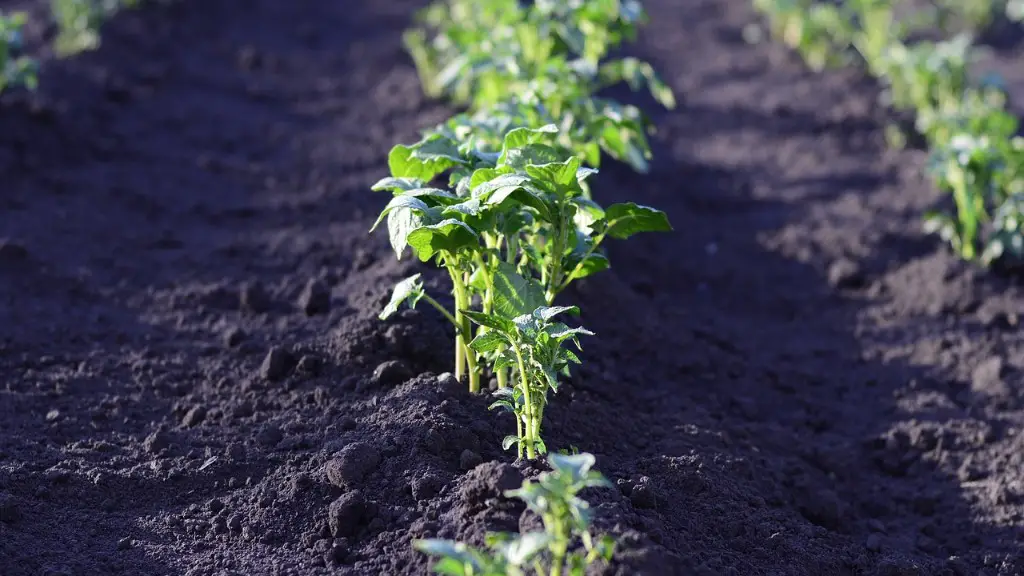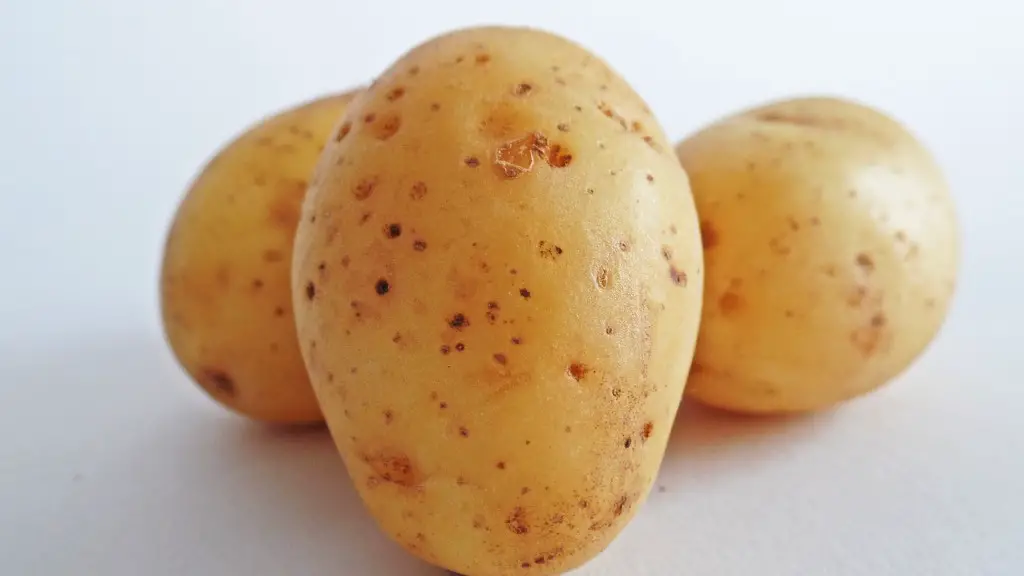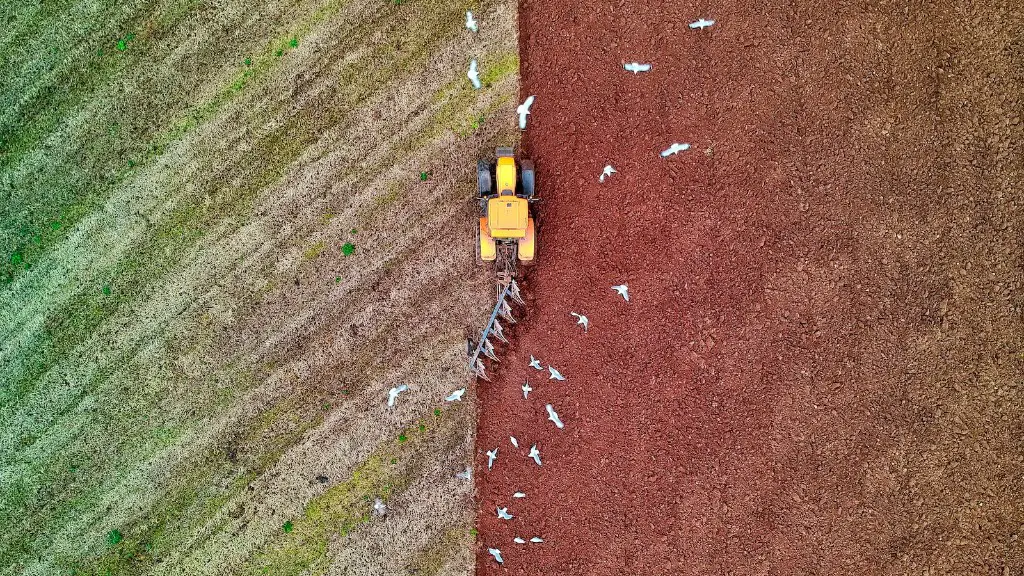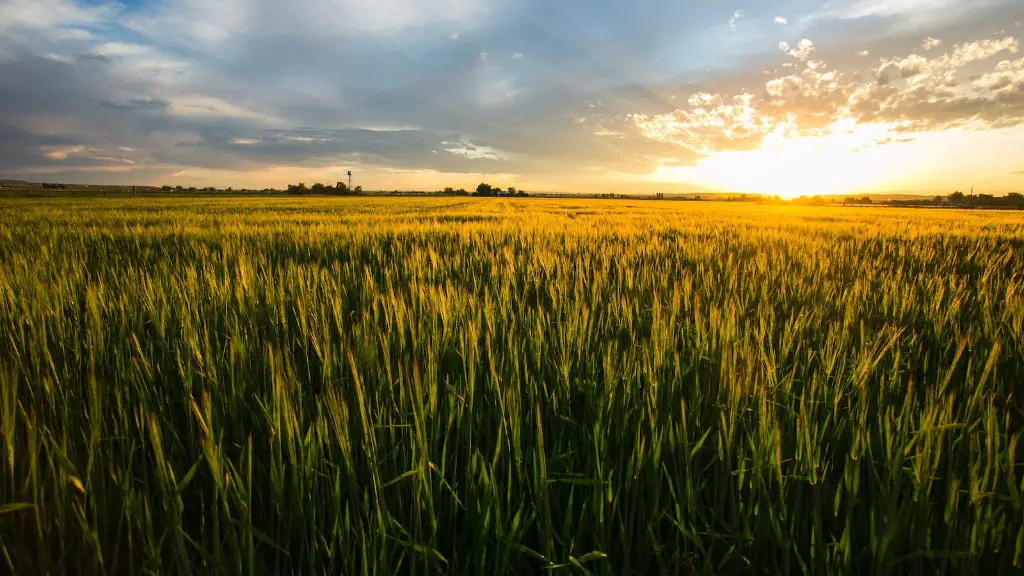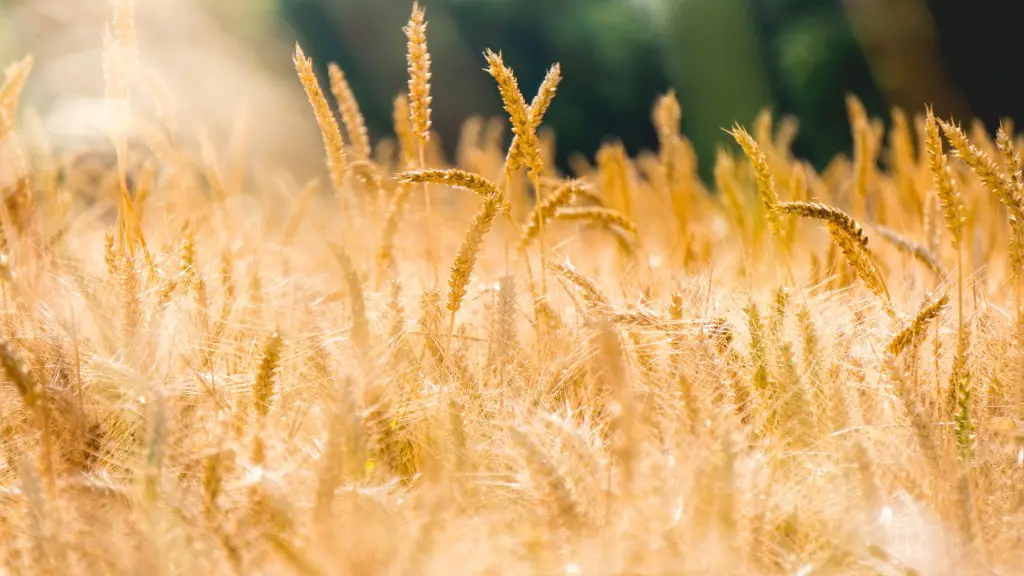Mexico is a major producer of food and raw materials with a vibrant agricultural sector. The country is known for its rich variety of crops, both in terms of type and geography, as it produces a large number of crops both for domestic consumption and for export. Mexico is an important player in the global food market and a major supplier of foodstuffs to the United States and many other countries. Mexico’s agriculture sector is highly productive, with a sizeable share of the total value of agricultural production coming from its intensive crop production in the country’s limited arable soils.
Mexican farmers rely on a variety of traditional farming methods, such as intercropping, crop rotations and animal husbandry, which have enabled them to achieve high yields and create a significant income from the land. The country’s agricultural sector is supported by government initiatives to support producers, provide technical assistance and improve access to inputs, such as fertilizers and pesticides, as well as access to rural credit. Mexico is one of the few countries in the world with a significant share of its population devoted to agriculture and still engaging in subsistence agriculture.
When it comes to major crops, Mexico relies on a wide variety of both tropical and temperate crops, including maize, wheat and beans. These are some of the main staple crops for Mexican diets, as Mexico is the fourth-largest producer of maize and the fifth-largest producer of beans in the world. Other major crops in Mexico include sorghum, oats, barley, and rice.
Due to its subtropical and tropical climate, Mexico also produces an array of tropical crops, such as coffee, bananas, and other fruits, as well as avocadoes. Its geographical location makes it an important producer of tropical fruits, mostly for export. Mexico is the world’s third-largest producer of avocadoes and the largest producer of limes, tomatoes and Jalapeño peppers.
Mexico’s livestock production sector is also important and it has a sizeable share of the total national agricultural production. The sector supports not only the country’s consumption of meat, but also its exports. Pork, beef, poultry and dairy products all have a significant role in Mexico’s agricultural economy.
Mexico is also known for its fisheries production, which is mostly for domestic consumption. The major inland fisheries, which are mostly freshwater species, produce about one-third of the total fish production in the country. Mexico is an important fish and seafood producer for both the domestic market and export.
Mexico’s agriculture sector is an important contributor to economic growth and it also plays an important role in providing employment, especially to rural and marginalized communities in the country. The contribution of agriculture accounts for over 13% of the total gross domestic product of the country.
Agricultural Inputs
Mexico’s agriculture sector relies heavily on inputs, such as fertilizers, pesticides, and herbicides, to achieve higher yields. Many of these inputs are produced domestically, while some are imported from abroad, such as seed, machinery, and biotechnological innovations. Mexico has also made significant investments in irrigation and drainage systems in different parts of the country, to make more efficient use of the limited water resources available.
The Mexican government has invested in developing agricultural research centers to support farmers and the country’s agricultural sector by providing the latest advancements in agricultural technologies. Investment in research and development in agriculture has led to the development of improved crop varieties and the adoption of newer and more effective practices in agriculture.
The government has also invested in strengthening rural credit markets with government-backed subsidies, grants and funds, in order to provide low-cost financing to farmers. The government also offers subsidies to farmers for fertilizer and agricultural inputs in areas affected by drought, for example.
The Mexican government also provides agrarian reform to certain sections of the population, like indigenous people, providing access to land to those who were previously excluded. These reforms are deemed to be important in establishing an agricultural sector in Mexico that is both economically and socially sustainable.
Agricultural Exports
Agricultural exports play an important role in Mexico’s economy, accounting for a significant share of the total value of exports from the country. The US is the biggest export destination for Mexican agricultural goods, with Mexico exporting over three billion dollars’ worth of food products to the US in 2018. Mexico is also an important exporter of agricultural products to Canada, Japan, and Europe.
Mexican agricultural exports are mainly composed of fruits, vegetables, and meats. Some of the most important products exported from Mexico to the US include avocados, tomatoes, dairy products, beer and wine, and berries. Mexico is one of the leading suppliers of avocados, tomatoes and berries to the US market.
Mexico is also an important exporter of coffee, with most beans going to the US and Europe. Coffee exports have grown steadily in the past few years, particularly in the US, as Mexican coffee is seen as having high quality standards. Mexico is also a major exporter of cocoa, with most going to the US and Europe.
Mexico is a major exporter of fresh fish and seafood, with most being exported to the US. Shrimp and tilapia are two of the most important seafood products exported from Mexico to the US, along with mahi-mahi and snapper. Mexico has been an important exporter of seafood to the US for the last 20 years.
Mexico is also a major exporter of wood products, particularly to the US. Mexico is the ninth-largest exporter of wood and wood products to the US, exporting around 1.2 billion dollars’ worth of such goods in 2018. The most important product exported is pine lumber, which is used extensively in construction.
Agricultural Policies
Agricultural policy in Mexico has largely been centered around the goal of increasing farmers’ access to markets, land, and other inputs. The government has implemented policies to increase investment in research and development, as well as providing subsidies and credit to support the agricultural sector.
The government also provides support for food production and provides incentives to encourage innovation, such as tax and energy subsidies and investment grants. The government, in partnership with the private sector, has also implemented an agricultural policy to ensure the sustainability of rural communities.
The government also provides incentives to encourage innovation, such as the promotion of Highly Productive Rural Agro-Projects (HPRA) that promote rural productivity and ensure the survivability of rural communities. HPRA grants provide incentives for farmers to adopt new agricultural practices, such as precision agriculture and crop rotations, to increase productivity and yields.
The Mexican government has also implemented a number of programs to support the local economy, including grants to support the development of local agricultural markets, such as the National Market Promotion Program. This program provides grants to small businesses so they can establish their own market stalls and develop their business.
The government has also implemented policies to promote organic agriculture and the production of organic inputs, such as fertilizers, pesticides and herbicides, in order to reduce the use of chemical inputs that are damaging to the local environment. In addition, the government has implemented initiatives to improve access to credit for farmers and fishermen, as well as for rural communities. Mexico has also made significant efforts to increase access to food for the most vulnerable in society.
Farming Practices
Mexican farmers rely on a number of traditional farming practices, such as crop rotation, intercropping and animal husbandry to ensure a high yield. Crop rotation and intercropping are common practices in Mexico, as it allows farmers to prevent soil depletion and increase the productivity of their crops. Animal husbandry is also important in Mexico, as livestock production is a large part of the agricultural sector.
Mexican farmers also rely on sustainable farming practices, such as the use of organic inputs, conservation and integrated pest management. These are important strategies to ensure the sustainability and productivity of the country’s agriculture sector as they reduce the use of chemical inputs, such as fertilizers and pesticides, and help to conserve the local environment.
In addition, Mexican farmers rely heavily on access to credit, subsidies and technical assistance to increase the productivity of their farms. The government and the private sector have invested heavily in rural credit markets and in providing subsidies and grants to support the country’s agricultural sector.
Mexico is also known for its extensive use of greenhouses, which contribute greatly to the country’s agricultural competitiveness. Greenhouses are particularly popular in Mexico because of the warm climate and the availability of low-cost labor, as well as the fact that they can be used to grow crops throughout the year. The use of greenhouses has allowed Mexican farmers to increase production and boost their yields significantly.
The government has also taken steps to encourage sustainable farming practices, such as conducting research into organic and low-input agricultural production, and providing grants and subsidies to farmers who adopt these practices. In addition, the government has invested heavily in the training and education of farmers, in order to increase the productivity of the country’s agriculture sector.
Agricultural Challenges
The agriculture sector in Mexico faces a number of challenges, especially when it comes to access to land and credit. The Mexican government has in recent years made efforts to address these issues, including granting land to marginalized groups and providing subsidies and grants to support agricultural production.
Another major challenge for Mexico’s agriculture sector is the lack of access to modern technologies and inputs, such as fertilizers, pesticides, and machinery. This has been a major impediment to the modernization and intensification of the country’s agricultural sector, as many rural farmers lack the necessary tools and resources to increase production.
Climate change and unpredictable weather patterns are also a challenge for Mexico’s agriculture sector, as they threaten yields and could lead to losses in production. Climate change is particularly damaging to Mexico’s tropical and sub-tropical crop production, as rising temperatures and unpredictable weather patterns can adversely affect production.
Mexico’s agricultural sector is also challenged by low adoption rates of modern agricultural technologies and practices. While there has been progress in recent years in terms of developing new crop varieties and improved crop management practices, many of these have not been adopted widely by Mexican farmers.
The economic and social sustainability of the country’s agricultural sector is also challenged by the lack of access to markets and low returns from agricultural production. This has led to farmers not being able to make enough profits to sustain themselves and their families and has resulted in a large number of rural Mexicans leaving for cities or migrating abroad.
